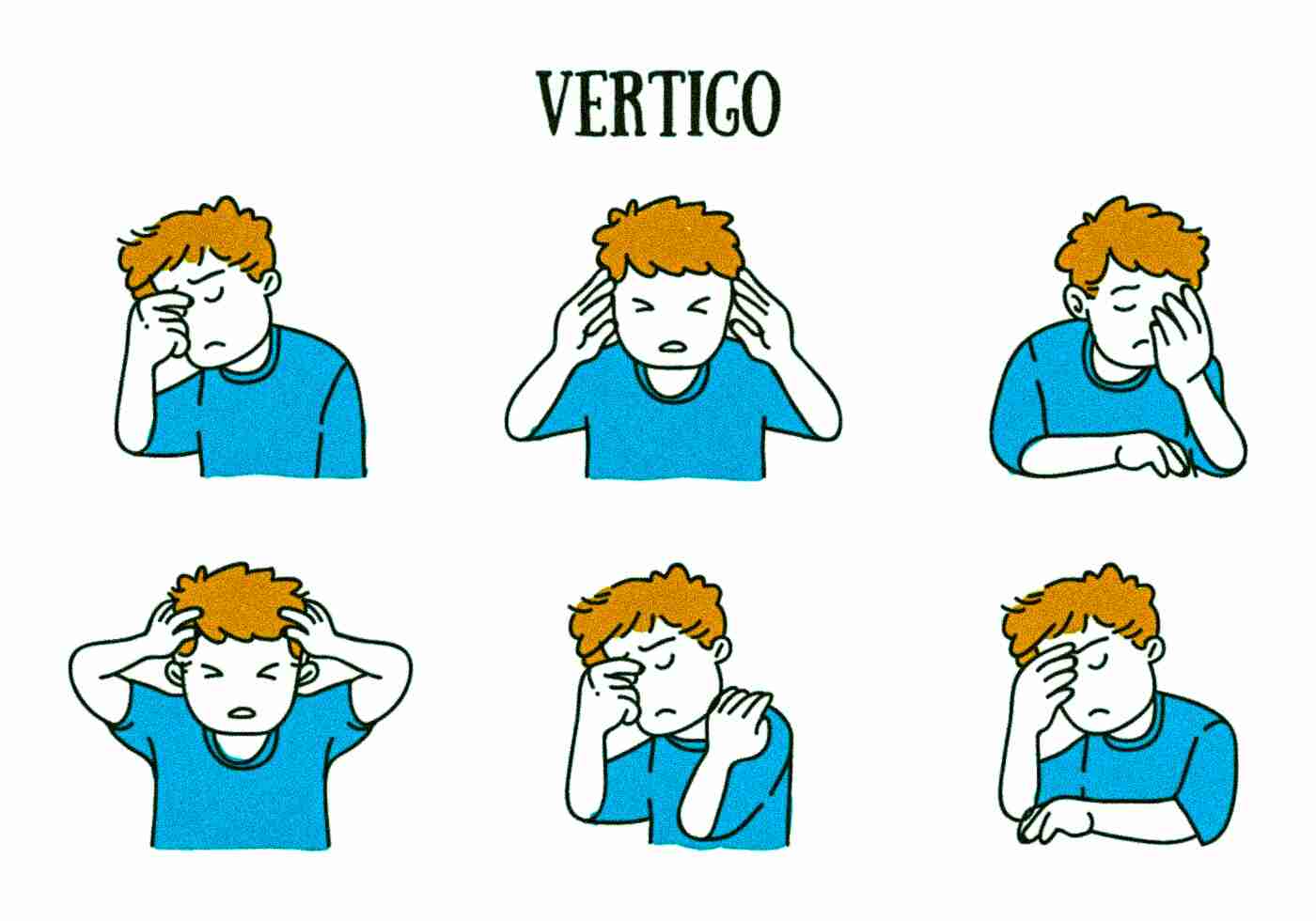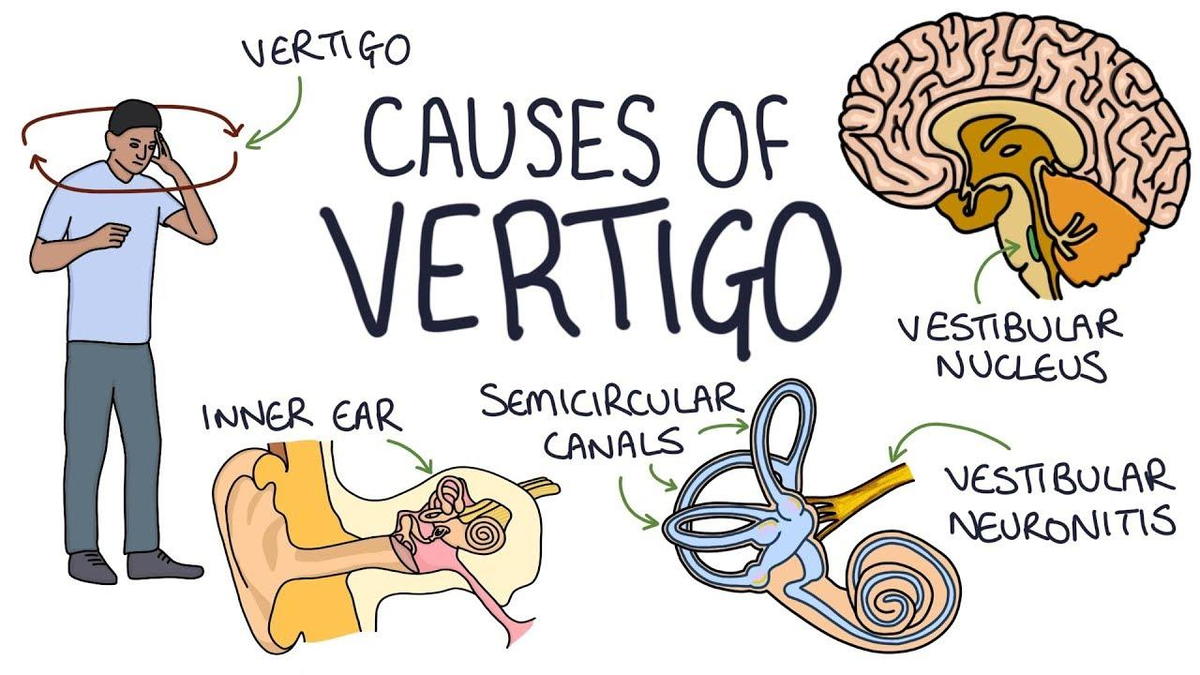Vertigo disease, characterized by a sensation of dizziness or spinning, can significantly impact your daily life. This comprehensive guide delves into the causes, symptoms, diagnosis, and treatment options for vertigo, empowering you with the knowledge to manage this condition effectively.
Vertigo Symptoms

Vertigo, characterized by a sensation of spinning or dizziness, can manifest through a range of symptoms depending on the underlying cause. Here’s an overview of common symptoms:
Vertigo symptoms can vary in intensity and duration, ranging from mild discomfort to severe episodes that disrupt daily activities. Understanding these symptoms is crucial for accurate diagnosis and effective treatment.
Vestibular Vertigo
- Sensation of spinning or whirling
- Loss of balance and coordination
- Nausea and vomiting
- Nystagmus (rapid, involuntary eye movements)
Cervicogenic Vertigo
- Dizziness triggered by neck movements
- Pain and stiffness in the neck
- Headaches
- Visual disturbances
Other Causes of Vertigo
- Migraines
- Meniere’s disease
- Acoustic neuroma (a non-cancerous tumor)
- Multiple sclerosis
Causes of Vertigo

Vertigo is a common symptom that can be caused by a variety of underlying medical conditions. These conditions can affect the inner ear, the neurological system, or the cardiovascular system.
Inner ear disorders are a common cause of vertigo. These disorders can affect the balance organs in the inner ear, which can lead to feelings of dizziness and spinning.
Inner Ear Disorders
- Benign paroxysmal positional vertigo (BPPV)is a common cause of vertigo that is caused by a problem with the balance organs in the inner ear. BPPV can cause sudden episodes of vertigo that last for a few seconds or minutes.
- Meniere’s diseaseis a disorder of the inner ear that can cause vertigo, hearing loss, and tinnitus. Meniere’s disease is thought to be caused by a buildup of fluid in the inner ear.
Neurological disorders can also cause vertigo. These disorders can affect the nerves that connect the inner ear to the brain, which can lead to feelings of dizziness and spinning.
Neurological Disorders, Vertigo disease
- Vestibular neuritisis a disorder of the nerve that connects the inner ear to the brain. Vestibular neuritis can cause sudden episodes of vertigo that last for a few days or weeks.
- Multiple sclerosisis a chronic neurological disorder that can affect the nerves in the brain and spinal cord. Multiple sclerosis can cause a variety of symptoms, including vertigo, dizziness, and fatigue.
Cardiovascular conditions can also cause vertigo. These conditions can affect the blood flow to the brain, which can lead to feelings of dizziness and spinning.
Vertigo is a common condition that causes a spinning sensation. It can be caused by a variety of factors, including inner ear problems, migraines, and certain medications. To learn more about the possible causes of vertigo , click on the link provided.
Vertigo can be a debilitating condition, but it can often be managed with treatment.
Cardiovascular Conditions
- Orthostatic hypotensionis a condition that causes a drop in blood pressure when standing up. Orthostatic hypotension can cause dizziness and lightheadedness, and it can also lead to vertigo.
Diagnosis of Vertigo
Diagnosing vertigo involves a comprehensive evaluation to determine the underlying cause. This process typically includes a physical examination, hearing tests, and imaging studies.
Physical Examination
During a physical examination, your doctor will assess your symptoms, medical history, and perform various tests to evaluate your balance, eye movements, and neurological function. These tests may include:
- Romberg test:Standing with feet together and eyes closed to check for balance issues.
- Dix-Hallpike maneuver:Head and neck movements to provoke vertigo and assess for positional vertigo.
- Gait assessment:Observing your walking pattern to identify any gait abnormalities.
Hearing Tests
Hearing tests are essential in diagnosing vertigo because inner ear disorders can often cause dizziness. These tests may include:
- Audiometry:Measuring hearing thresholds and detecting hearing loss.
- Vestibular evoked myogenic potential (VEMP) test:Assessing the function of the vestibular nerve, which is responsible for balance.
Imaging Studies
Imaging studies can provide detailed images of the brain and inner ear, helping to identify structural abnormalities or lesions that may be causing vertigo. These studies may include:
- Magnetic resonance imaging (MRI):Creating detailed images of the brain and inner ear to detect tumors, strokes, or other abnormalities.
- Computed tomography (CT) scan:Using X-rays to create cross-sectional images of the head and neck, revealing bone abnormalities or other structural issues.
Treatment Options for Vertigo: Vertigo Disease
Treatment for vertigo depends on the underlying cause and can include a combination of medications, physical therapy, and in rare cases, surgical intervention.
Medications
Medications may be prescribed to reduce symptoms such as nausea, vomiting, and dizziness. Common medications include:
- Antihistamines (e.g., meclizine, dimenhydrinate)
- Anti-nausea drugs (e.g., prochlorperazine, ondansetron)
Physical Therapy
Physical therapy, specifically vestibular rehabilitation exercises, can help improve balance and reduce dizziness by retraining the brain to compensate for the vestibular system’s dysfunction.
Surgical Interventions
Surgery is rarely necessary for vertigo but may be considered in cases where other treatments have failed or when the underlying cause is a structural abnormality, such as a tumor or a blockage in the inner ear.
Prevention of Vertigo

Vertigo can be a debilitating condition, but there are steps you can take to reduce your risk of developing it. Here are some lifestyle modifications and preventive measures to consider:
Avoiding Triggers
Certain triggers can increase your risk of developing vertigo. These include:
- Caffeine
- Alcohol
- Stress
If you are prone to vertigo, it is important to avoid these triggers as much as possible.
Maintaining a Healthy Weight
Obesity is a risk factor for vertigo. Maintaining a healthy weight can help to reduce your risk of developing the condition.
Getting Regular Exercise
Regular exercise can help to improve your balance and coordination, which can reduce your risk of developing vertigo. Aim for at least 30 minutes of moderate-intensity exercise most days of the week.
Ultimate Conclusion
Vertigo disease can be a debilitating condition, but with proper diagnosis and treatment, most individuals can regain their balance and improve their quality of life. By understanding the underlying causes, symptoms, and treatment options, you can take control of your vertigo and live a fulfilling life.
